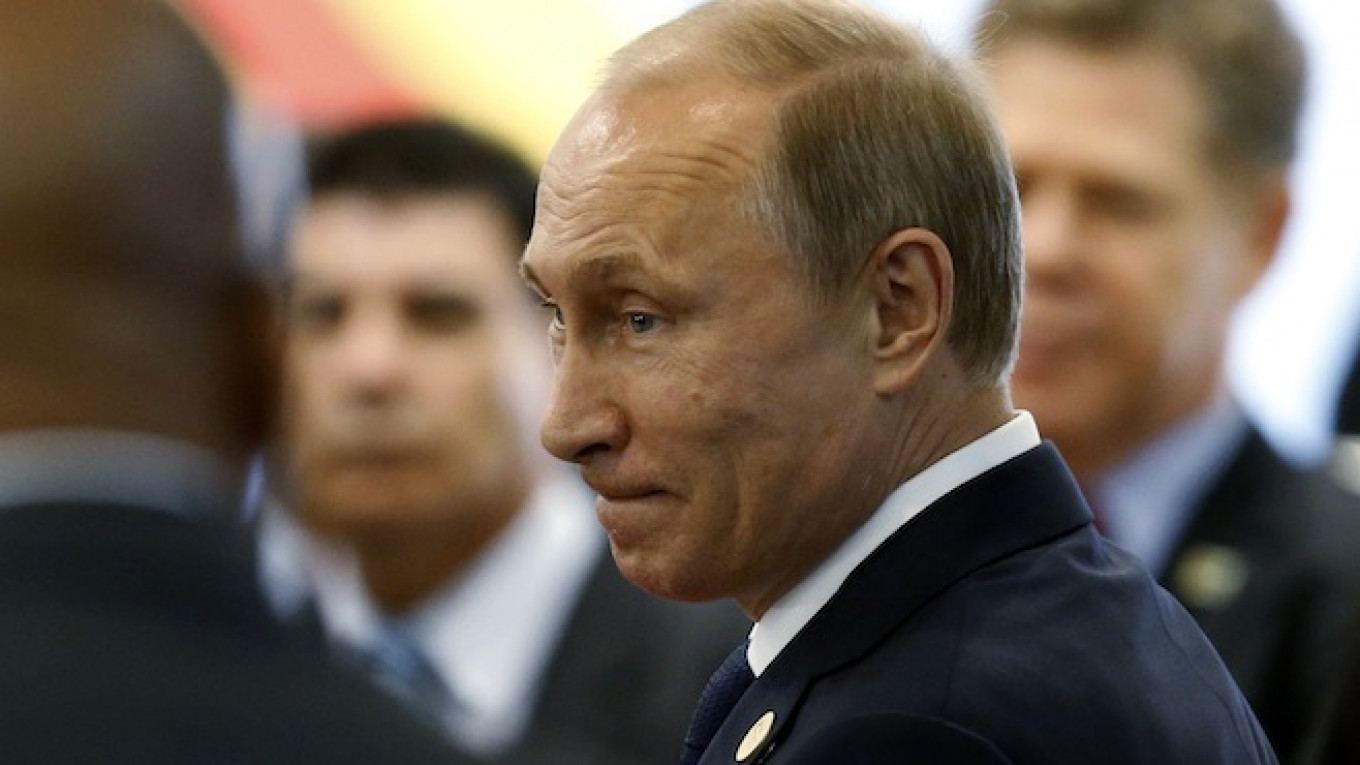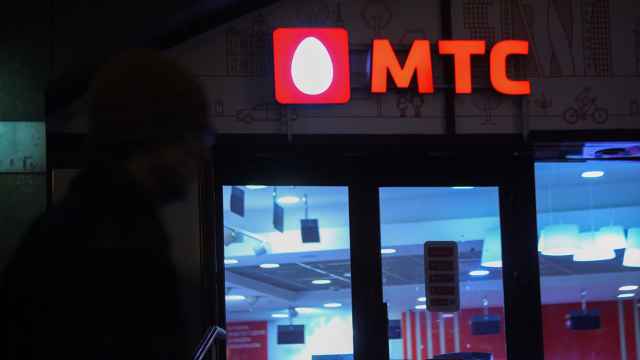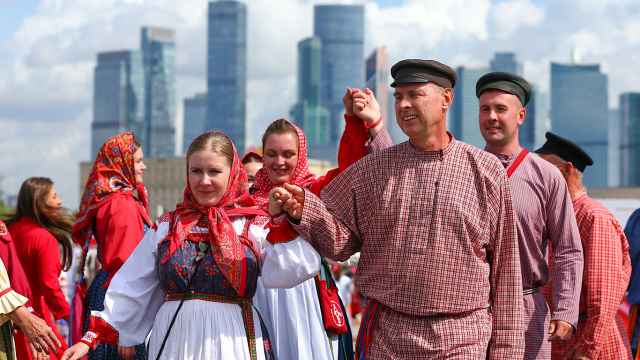Russia appears for now to have escaped an economic contraction, but recession is still likely in the second half of the year as western sanctions over Ukraine bite, analysts warn.
Preliminary gross domestic product data published on Monday showed the economy growing by 0.8 percent in annual terms in April-June, compared with 0.9 percent in January-March.
But the figure was flattered by one-off factors, and the outlook for the rest of the year is rocky as U.S. and EU sanctions — and Russia's retaliatory ban on food imports — exacerbate a climate of weak investment, high borrowing costs and upward pressure on prices.
Russia's economic data are being closely watched to gauge the impact of the sanctions, imposed over Moscow's annexation of Crimea and what western governments see as its failure to curb pro-Russian separatists in eastern Ukraine.
The measures are aggravating a slowdown that was already evident in 2013: economists polled at the end of July predicted just 0.3 percent economic growth in 2014 as a whole, with a 0.5 percent year-on-year contraction in the third quarter.
Monday's preliminary data did not provide an assessment of quarter-on-quarter growth, leading to continuing speculation over whether Russia managed to avoid a "technical recession" — two consecutive three-month periods of negative quarter-on-quarter growth.
Answering that question depends largely on seasonal adjustment methods, a complex technical matter that leaves the question open until the more detailed data is published.
Most analysts calculated that Russia had avoided a technical recession, but saw that as scant consolation for an economy that will still struggle to avoid a contraction in the second half of the year.
"Although growth slowed a touch in annual terms, output appears to have grown over the quarter. Nonetheless, the respite is likely to be brief," Capital Economics economist Liza Ermolenko said in a note.
She estimated quarter-on-quarter growth in the second quarter between 0.2 and 0.5 percent.
VTB Capital economist Vladimir Kolychev said all the growth drivers in the second quarter were temporary: a one-off boost from higher inventories, and higher-than-normal gas exports as customers abroad stock up to prepare for potential disruption.
"We can see already from July numbers that exports of gas are dropping and industrial production numbers are softer, and it's not clear what could drive growth in the second half."
Sanctions Hit
Expectations that Russia's economy will slow sharply in the second half of the year partly reflect statistical effects. In 2013 growth firmed during the second half of the year, creating a higher base to measure against.
Fears that the economy could soon begin to shrink have also been heightened by the latest round of western sanctions. U.S. and EU restrictions on the raising of foreign finance by major Russian state banks are likely to raise borrowing costs in Russia and exacerbate weakness in investment.
Russia's sweeping ban on most western food imports, enacted earlier this month, will also cause pain at home by pushing up prices and hitting consumers, whose spending has been the major factor sustaining economic growth in recent years.
Data showing that car sales slumped by a dramatic 23 percent in July indicated that consumers were already tightening their belts.
Overall retail sales growth slowed sharply in June, rising by 0.7 percent in annual terms, one-third of the pace of the previous month.
High inflation also means that the central bank will at best maintain its current high interest rates, if not hike them further, economists warn.
"The fact that there is lack of access to western capital markets, and at the same time a tightening of borrowing conditions on local markets, suggests that investment demand is unlikely to pick up any time soon," said VTB Capital's Kolychev.
"That doesn't paint a very bright picture for growth in the second half."
See also:
European Banks Battle to Keep Russian Clients Amid Sanction Lending Freeze
A Message from The Moscow Times:
Dear readers,
We are facing unprecedented challenges. Russia's Prosecutor General's Office has designated The Moscow Times as an "undesirable" organization, criminalizing our work and putting our staff at risk of prosecution. This follows our earlier unjust labeling as a "foreign agent."
These actions are direct attempts to silence independent journalism in Russia. The authorities claim our work "discredits the decisions of the Russian leadership." We see things differently: we strive to provide accurate, unbiased reporting on Russia.
We, the journalists of The Moscow Times, refuse to be silenced. But to continue our work, we need your help.
Your support, no matter how small, makes a world of difference. If you can, please support us monthly starting from just $2. It's quick to set up, and every contribution makes a significant impact.
By supporting The Moscow Times, you're defending open, independent journalism in the face of repression. Thank you for standing with us.
Remind me later.






